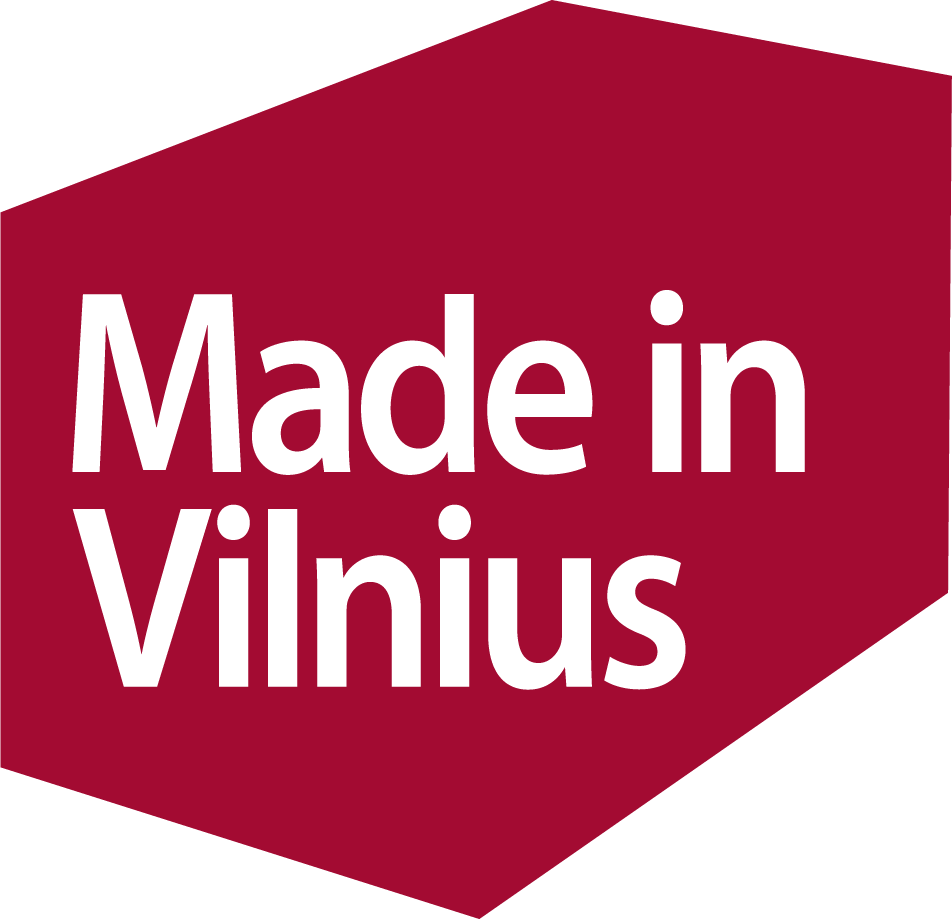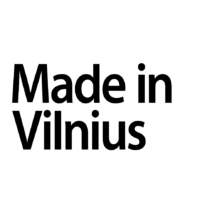The Vilnius Short Film Festival, which will celebrate its seventeenth year in January 2024, presents its audience with a new identity, whose strategic and visual solutions are one of the first steps towards the widest possible inclusion of audiences and the organizers' commitment to annually increase the festival's accessibility for people with disabilities and other socially sensitive groups of society.
"The festival constantly strives to present and respond to what is important today both in cinema and in society. And for us today, it is extremely important to do our best to ensure that as many people as possible can participate in our events and enjoy short films. So, as the festival is in its seventeenth year, we decided to take steps to make the visual identity not only attractive, but also help us speak more loudly about the topic of accessibility. We consider the change of identity a sign of the festival's maturity and an important process during which we had the opportunity to rethink our goals, audiences and priorities. At the same time, this step and the "encoded" theme in it is also a big responsibility towards our viewers to create the most favorable conditions for them to see our programs and participate in the events", says the head of the festival Rimantė Daugėlaitė–Cegelskienė.
The festival is changing its logo, visual identity and name
The word "international" does not remain in the name of the Vilnius Short Film Festival - the name becomes clearer and easier to read, and the new visual language is inspired by film subtitles - elements that open films to many people, regardless of their language. However, not all people perceive the world through language, sound or image, so the festival delves into this complex topic, rethinks old attitudes, discards omniscience and learns.
The creative agency "Autoriai", which actively researches the topics of accessibility in communication and advertising, also helped to make strategic steps.
"We are very happy with the cooperation with the agency "Autoriai", with whom we started dating back in 2012, when together we fundamentally rethought the identity of the festival. Meeting again this year, we saw again how easy it is to work with like-minded people who also care about accessibility in the field of cinema and culture, and who, guided by the latest design trends and consulting with various communities, helped to formulate a clear strategy to guide us on our journey towards more comprehensive openness." - says Rimantė Daugelaitė-Cegelskienė.
Giedrė Ona Šileikytė, the founder and creative director of the creative agency "Autoriai", shares: "This project is extremely unique. Unique is probably the most in what we thought about when creating it. We wanted to create a maximally accessible visual identity that was both functional and conceptual. It's no secret that graphic design solutions in the field of culture and art often prioritize aesthetics over function. Sophisticated visual solutions are created, eliminating the fundamental function of design - to make people's lives easier so that they can read, understand or find. While creating this new visual identity of the Vilnius Short Film Festival and knowing that it becomes a symbolic commitment of the festival to increase the accessibility of short metro films, we tried to focus on these basic functions of graphic design and accessibility rules, in a sense to return to the very beginning.
Subtitles and dialogue are the axis of this visual identity. Elements that expand the perception of every movie to people of another world, another nation, another context. Contrasting graphics and colors, a clear hierarchy of elements and extremely minimal design solutions in this visual identity not only ensure the accessibility of the visual identity, but also speak of the most important thing - the desire to be equally understandable, visible, clear not to a specific group of people, but to everyone."
An invitation to the film community to share their experiences and start the change from themselves
The film industry and the accessibility of cinemas in Lithuania are experiencing serious challenges, so the festival representatives want to contribute to both solving this and drawing the attention of both cinema managers and decision makers. For example, very few cinema screening spaces are properly adapted for people with disabilities. The festival is also committed to increasing accessibility using various means - be it sound representation for people with visual impairments, subtitles for the deaf and hard of hearing (SKN), translation of events into sign language, or efforts to provide more opportunities to enjoy short films for seniors, families or other socially sensitive members of society. for groups.
Vilmantas Balčikonis, the representative of the Lithuanian Union of the Blind and Visually Impaired, claims that the topic of accessibility is getting louder in the public discourse - from the accessibility of the physical environment to the accessibility of information and cultural products. The actions of institutions, initiatives of organizations, and the efforts of communities bear fruit, but there is still a lack of breakthrough in certain areas. Among them is the availability of cinema - there is a lack of films with sound representation. Speaking about the situation of adaptation of films for the blind and partially sighted, he notes: "The situation is such that once or twice a year the blind and partially sighted are invited to special screenings where they can watch a film with sound representation. If you don't like that movie, if you got sick that day, you won't see the movie with sound representation. Yes, some of the production ends up in the Audiosensory Library database, but in general, the supply of films with sound representation is poor. There is a lack of understanding that this is not a burden on the filmmaker, but an opportunity to invite new, undiscovered target groups to the cinema."
Speaking about the availability of information, V. Balčikonis says: "After all, the advertiser wants his message to be read by as many people as possible. For this reason, it is worth thinking about how to make the information legible even for those with poor vision. Visually attractive but inappropriate contrast, font, text background, etc. are often chosen not out of ill will, but more out of ignorance. And here we are talking not only about our community, but also about an elderly person who may have forgotten his glasses. The same applies to websites."
For two years, the EU Accessibility Directive will help ensure equal access to a wide range of products and services for all Europeans, including the disabled and the elderly. It will enter into force on June 2025, 28. and will apply to all EU members, as well as international organizations operating in the Community. The Vilnius Short Film Festival aims to make changes as soon as possible, and in the context of these strategic changes, the essence of the festival remains unchanged - the most interesting short films from Lithuania and abroad revealing the latest cinema trends and today's current affairs will continue to be presented, and the audience will be invited to enjoy the diversity of the short film genre. innovativeness and openness to experiments.
The 17th Vilnius Short Film Festival will take place in 2024. January 17-23 In cinemas in Vilnius, Kaunas, Klaipėda and Šiauliai and throughout Lithuania - on the home cinema platform People Cinema. The festival is organized by the Lithuanian short film agency "Lithuanian Shorts".

